Migration is a concept that is often not correctly understood in the public sphere and, of course, insufficiently analysed in the academic one. We are not only referring to the international stakes of migration, but also to those that impact Romanian society. On one hand, questions such as: how many Romanians have left in the last 30 years? Why? Where to? What are the challenges they face and what are the needs of the diaspora? Apart from legal migration, what is known in Romania about illegal migration and what measures exist to combat it? On the other hand: what labour force does the Romanian state need and how does it cover it? What role do immigrants play? What are their integration needs? These represent just a part of the questions that are not being asked or that receive only superficial answers, insufficient to bring this subject closer to the Romanian citizen or to generate coherent public policies. See more…
Romania is at the beginning of research and teaching in this field of migration (master’s studies, doctoral studies), although Romania – according to UN reports (for example, the UN International Migration Report) – is among the top states whose emigration rate is increasing. Unlike the case of Syria or, more recently, Ukraine, Romania has not provided Europe with refugees following an armed conflict, but a significant portion of the population – the figure of 3 million Romanians is rumoured – has left the country in the last 30 years due to economic, social, and political difficulties.
In order to have specialists even in consular departments or career offices representing Romania abroad, we need experts who deeply understand these aspects. The state in the service of the citizen means professionals, specialized officials, graduates of studies grounded in specialized departments such as a master’s degree or doctoral programme in the field of migration.
Academic research has its rigour, regardless of the quantitative or qualitative methodology used. The field can be studied from the perspective of political sciences, international relations, but especially through the prism of a corpus of studies – with a lot of tradition in the West – studies about migration. Through the DIM Centre, we meet this social and academic need. Our project Migrating into Books, initiated in 2022, combines a passion for books and concern for migration policies. Through it, the general public can explore the experiences of remarkable authors and better understand the complexity of the migration phenomenon through captivating case studies. So far, our events have been organized in partnership with Humanitas Publishing House and Humanitas Bookstores.

BOOK REVIEW
Daron ACEMOGLU and James A. ROBINSON. 2012. Why Nations Fail: The Origins of Power, Prosperity, and Poverty. Litera Publishing House, Collection Kronika. Translated in Romanian as De ce eșuează națiunile. Originile puterii, prosperității și ale sărăciei
Alina TEODORESCU*
26/08/2025
See more…
The field of international development has gained prominence in light of global efforts to improve the living conditions of disadvantaged societies, and the approaches to addressing these challenges have evolved alongside technological advancements and the processes of globalization. However, the core of development remains centred on the same question: why do some nations manage to achieve prosperity and ensure security and equal opportunities, while others fail to meet even the basic needs of their citizens?
The book „Why Nations Fail”, written by Daron Acemoglu and James A. Robinson, Nobel laureates in Economic Sciences in 2024, represents one of the most influential contributions to formulating a coherent answer to this question.
Determinants of National Prosperity
Naturally, various theories have been formulated in the academic literature to explain the development gaps between nations. For instance, the geographical hypothesis posits that factors such as unfavourable climates, poor soils, or limited access to trade routes hinder agricultural productivity and constrain the conditions for economic development. The cultural hypothesis suggests that certain traditions, social norms, or religious influences may promote the emergence of prosperity. There is also the idea that development gaps arise because political and economic leaders in poor countries lack the knowledge to formulate effective policies, which the authors refer to as the “ignorance hypothesis”.
What are the Limitations of Classical Approaches?
Although the above hypotheses may serve as important factors in explaining development or the lack thereof, Acemoglu and Robinson empirically demonstrate why geography, culture, or the ignorance of leaders cannot serve as universally valid causes.
Despite having a common history, culture, and geography, North Korea and South Korea present diametrically opposed realities: in the North, the population is barely surviving, while in the South, citizens benefit from modern public services and extensive economic opportunities. Another case is that of the city of Nogales, divided between Arizona (USA) and Sonora (Mexico): on one side of the border, there is stability, prosperity, and functional institutions, while on the other side, Mexican citizens live in poverty and often attempt to cross the border. Latin America, despite being much richer in mineral and precious stone resources than North America, has experienced a marked economic decline, while the USA and Canada have become poles of prosperity. In Europe, the gap between the West and the East illustrates that, although both regions had similar levels of development in the 14th century, their historical trajectories led to notable differences. African states continue to be trapped in a vicious cycle of political instability and extreme poverty, despite their abundant natural resources.
How Do Acemoglu and Robinson Explain Development Gaps?
The examples above challenge previous theories regarding the variation in development and suggest that the explanation for global inequalities lies beyond geography, culture, or the ignorance of leaders.
The answer provided by Acemoglu and Robinson involves a comprehensive demonstration, built on historical and economic analyses that go beyond simplistic explanations. The book not only rejects previous theories but also proposes a coherent framework through which the persistent causes of poverty and underdevelopment can be understood. In very simple terms, the authors explain development differences through the nature of political and economic institutions—inclusive or extractive—and their ability to foster sustainable growth or, conversely, stagnation and decline. Inclusive institutions are those that promote economic opportunities for all citizens, allowing broad participation in political and economic life, thereby stimulating innovation and sustainable growth. On the other hand, extractive institutions concentrate power and resources in the hands of a small group, limiting access to opportunities and perpetuating inequalities, which leads to economic stagnation and decline.
We will not detail the entire argument of the authors here, as we encourage readers interested in understanding the dynamics of development and the factors that determine the success or failure of nations to read the book for themselves. The book’s exhaustive analysis explores the mechanisms by which institutions influence economic and social evolution, emphasizing the importance of historical context and power structures in shaping the path of a nation.
The theory advanced by Acemoglu and Robinson is not without limitations, as China is one example that challenges it through sustained economic growth despite extractive institutions. However, understanding this theory, along with other approaches, contributes to a multidimensional understanding of development in different temporal and geopolitical contexts.
Thus, „Why Nations Fail: The Origins of Power, Prosperity, and Poverty” is essential for completing the theoretical framework necessary for analysing global development, both for students and academics, as well as for practitioners in the field.
* Alina TEODORESCU, Project Coordinator, Centre for the Study of International Development and Migration (DIM)
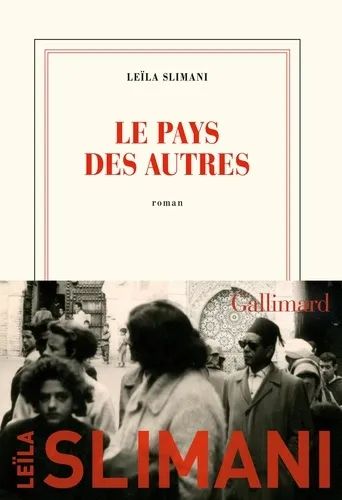
BOOK REVIEW
Leïla SLIMANI. 2021. Le pays des autres – PREMIÈRE PARTIE La guerre, la guerre, la guerre, Gallimard Publishing House, Collection Folio (no6943) (originally in French)
Ruxandra CUCU*
18/07/2025
See more…
While travelling through Europe, I recently had the chance to get my hands on the first volume of Leïla Slimani’s trilogy Le pays des autres – La guerre, la guerre, la guerre, written by the acclaimed Franco-Moroccan author and winner of the 2016 Prix Goncourt. The edition I picked up is a compact Folio paperback (no. 6943), published in the summer of 2021. While it doesn’t have the same imposing look as the original 2020 hardback published by Gallimard, I found this version extremely comfortable to read — a detail not to be overlooked, especially for readers like me who spend hours holding a book.
As mentioned above, this novel is the first in a recently completed trilogy, which includes volume II, Regardez-nous danser, and volume III, J’emporterai le feu, published this spring and not yet translated into English.
This trilogy marks a significant shift in Slimani’s literary trajectory — she had never before embarked on such an ambitious narrative project. Until now, she was best known for the psychological thriller Chanson douce (Lullaby in English), which earned her the Prix Goncourt. With Le pays des autres, she enters new territory: a sweeping yet intimate saga inspired by Morocco’s recent history and her family memories. That said, the stylistic trademarks that made her famous remain: meticulous attention to detail, emotionally charged domestic scenes, and a focus on the claustrophobic spaces where unspoken tensions and subtle power dynamics quietly unfold.
MOROCCO BETWEEN THE PROTECTORATE AND INDEPENDENCE
The novel follows roughly the first decade of married life — from 1944 to 1955 — between Mathilde, a young Alsatian woman, and Amine, a Moroccan man who fought in the French army during World War II. Falling in love during the war, the two marry shortly after its end and settle near Meknès, in northern Morocco — a region with a long and layered history, now the capital of the Fès-Meknès region.
While Amine invests in a dry, difficult piece of land in the hope of building a modern farm and securing a better future for his family and two children, Mathilde — raised in a Western, urban setting — struggles with the isolation of rural life, cultural and linguistic barriers, and the rigid expectations of a deeply patriarchal society. Disillusionment, both marital and cultural, gradually sets in and weighs heavily on their relationship.
The novel unfolds largely through evocative domestic scenes: the cold kitchen, the stifling bedrooms where women form fragile alliances born of shared constraint, the dusty fields where survival is a daily battle. The couple’s children, Aïcha and Selim, have already begun to embody — perhaps unknowingly — the layered conflicts of language, identity, and belonging. The friction between “French” and “Moroccan” worlds is not only played out in the streets through nationalist protests and colonial tensions but also quietly, within the home, at the dinner table, in gestures, in silences.
Although not a historical novel in the strictest sense, La guerre, la guerre, la guerre offers a remarkably nuanced portrayal of Morocco in the final years leading up to independence. The country had been under French protectorate since 1912, and the period covered in the novel is marked by growing political unrest and a surge of nationalist movements that, as history would confirm, would eventually erupt into violence.
The background of colonial tension is crucial: by the 1950s, French settlers controlled vast tracts of fertile land, while much of the local population was economically and politically marginalized. These structural imbalances form the invisible frame for nearly every scene. For example, Amine’s struggle to make his farm viable cannot be separated from the mutual distrust between colonizers and locals, nor from the diffuse, often invisible violence that permeates everyday life.
MIGRATION AS PERSONAL EXPERIENCE. COLONIALISM AND POWER DYNAMICS
Migration is a central — though often implicit — theme in the novel. However, Slimani flips the script: instead of depicting the familiar journey from South to North, she explores what it means for a European woman to migrate to rural Morocco in the 1940s and 1950s. The result is an original and remarkably sensitive portrayal of reverse migration.
Mathilde embodies the paradox of the expat: outwardly privileged, yet deeply vulnerable. Her process of adaptation is both painful and disorienting. It requires her to abandon, even if temporarily, many aspects of her identity — her clothing, her language, her habits, and her assumptions about gender and faith. Slimani skillfully undermines the simplistic colonizer/colonized binary. Mathilde lives modestly, works alongside her husband’s family, and yet remains associated in the eyes of many locals with the broader colonial system exploiting Moroccan land.
Conversely, Amine — a Moroccan man and veteran of the French army — finds himself torn between competing allegiances: to his homeland, to his family, and to the colonial order in which he once believed.
WOMANHOOD IN A PATRIARCHAL SOCIETY
Limited access to education, restricted mobility, unequal domestic and agricultural labor, and improvised female solidarities — all these appear vividly in the novel, especially through the experiences of Mathilde, Selma (Amine’s younger sister), and Aïcha (their daughter). What sets Slimani apart, however, even from other feminist writers, is her extraordinary ability to convey emotional nuance. She captures the fragile, shifting bonds between women with rare intimacy and clarity.
Much of the novel’s emotional power lies in these female dynamics: the quiet complicity between Mathilde and Selma, the cold tension between Mathilde and her mother-in-law, and the shared hopes invested in Aïcha’s future. These relationships prompt a powerful and legitimate question: could the title Le pays des autres — “the country of others” — also refer to the separate, parallel reality inhabited by women? A country invisible, domestic, apolitical — but no less marked by power and history.
Without replacing academic literature on decolonization, gender, or migration, La guerre, la guerre, la guerre offers a deeply moving and insightful entry point into postwar Moroccan society. It is a novel of subtle contradictions, quiet grief, and unspoken strength. For anyone interested in the private lives behind the public events of history — and in how the personal is always, in the end, political — this first volume of Slimani’s trilogy is an enriching summer read.
*Ruxandra CUCU, master’s program European Politics and Society, 2023-2025
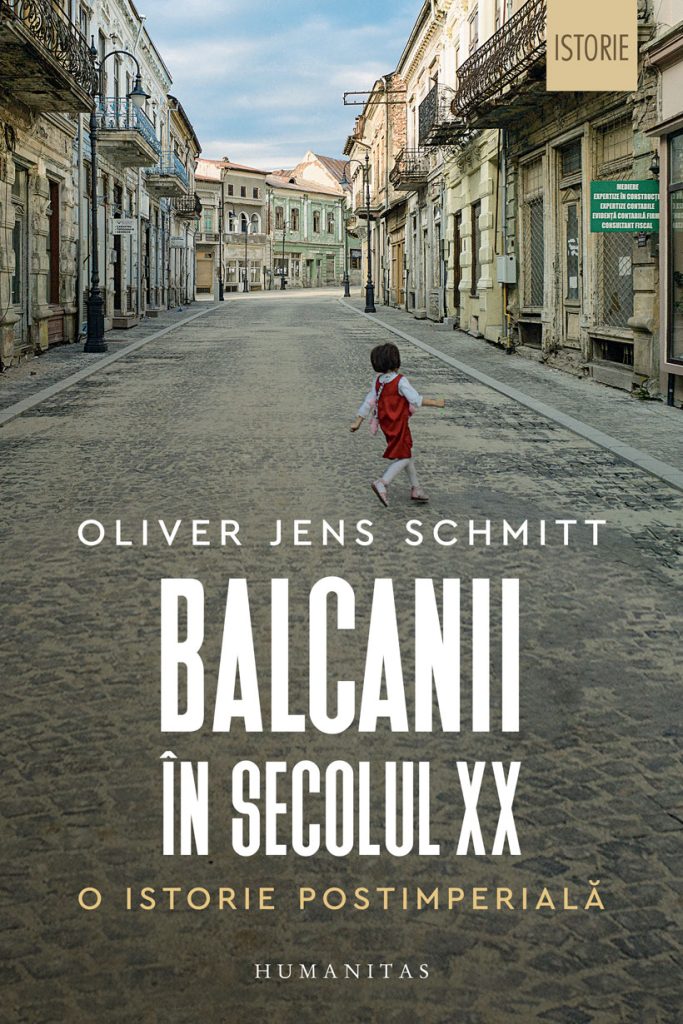
BOOK REVIEW
Oliver Jens SCHMITT. 2019. Der Balkan im 20. Jahrhundert: Eine postimperiale Geschichte. Humanitas Publishing House. Translated in Romanian by Irina Manea and Andrei Pogăciaș as Balcanii în secolul XX. O istorie postimperială.
Nicoleta Simona BĂDĂLAN*
23/05/2025
See more…
Published in its original form in German and then translated into Romanian in 2020 by Humanitas Publishing House, “The Balkans in the 20th Century”, written by renowned Swiss historian Oliver Jens Schmitt, takes us through the history of a unique region of the world -the Balkans. Known for his expertise in the History of Southeast Europe, Schmitt proposes in this book a comparative and critical reading, going beyond national myths and highlighting the interdependencies between states and populations.
In this volume, the author analyses the political and social transformations experienced by Balkan states after the collapse of the empires, offering a transnational perspective that transcends borders and national narratives. The book stands out for not treating history as a mere succession of events but as a complex process in which identity changes, and, in which migrations, and clashes between political projects play a central role. Schmitt connects the nation-states in the region, avoiding treating them in isolation, and provides a comprehensive analysis of a century marked by instability, radical changes, and persistent conflicts.
When Borders Change Lives – Migration and Invisible Ruptures
One of the most important sections of the book is dedicated to the so-called “new peripheries.” Schmitt shows how the borders redrawn after the Balkan Wars of 1912-1913 which led to the formation of new states and the redefinition of frontiers between Greece, Serbia, Albania, Bulgaria, and the Ottoman Empire – did not solely affect the political organization of the region but transformed people’s daily lives. Thus, seasonal migration, transhumance (i.e. a practice of moving livestock from one grazing ground to another in a seasonal cycle), and cross-border labour were the long-standing realities of Balkan inhabitants who were nearly wiped out. The author notes that “customs regimes had a drastic effect on transhumance and seasonal labour”, a concise observation that opens up a broader conversation about the disruptions caused by new nation-states.
The account goes beyond economic considerations, and discusses how traditional migration patterns have disappeared: every winter shepherds used to move south while laborers would journey seasonally to Istanbul or Thessaloniki until they had to either assimilate or abandon their way of life. Instead of the traditional ties, military barriers combined with national security measures resulted in restricted border crossings and economic shutdowns which replaced the dynamic international community of the Balkans. This portion of the text delivers essential information about how government decisions shape both population migration and social relationships which were established across multiple generations.
Romania in the Balkan Context
The author demonstrates a particular interest in Romania as a case study that contributes to a broader understanding of Balkan historical development. Throughout the book, Romania holds its position as an essential element in the Balkan historical story which extends beyond its borders to neighbouring countries in this regional process. Schmitt includes Romania within his European scope to explore regional studies that demonstrate common historical patterns of ethnic unification
Bessarabia, Dobruja, and Transylvania are thus, not only presented as disputed territories, but as dynamic spaces where migration, identity, and political projects collide. In this context, the collapse of Greater Romania is not depicted as a unique tragedy but as a regional expression of the fragility of post-imperial constructions. As Schmitt notes, in the summer of 1940, “Romania was in a dramatic situation: externally, isolated; internally, the king’s political power was not based on national cohesion, but on the subversion of the constitutional system by the king and his camarilla”.
Conclusion
The Balkans in the 20th Century is not an easy read, but it is necessary. It offers essential insights for understanding not only the past but also the tense present of the region. Through its discussion of migration, identity, and borders, Schmitt reminds us that history is not just about what happened – it is about how the choices of the past continue to shape our world today.
* Nicoleta Simona BĂDĂLAN, B.A. program in Political Sciences, 2023-2026
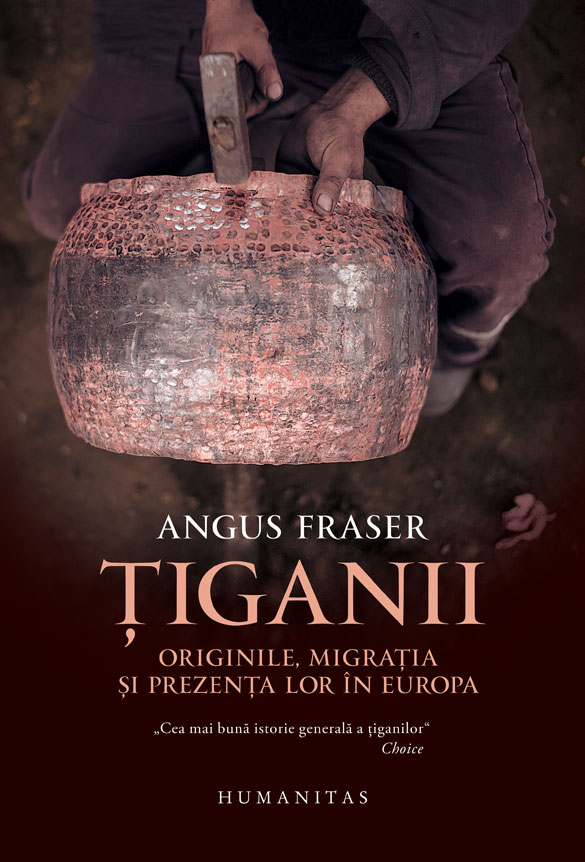
BOOK REVIEW
Angus FRASER. 1995. The Peoples of Europe – The Gypsies. Humanitas Publishing House.Translated in Romanian by Dan Șerban Sava as Țiganii. Originile. Migrația și prezența lor în Europa.
Adriana Casandra CIOCÂRLAN-COLLIE*
23/04/2025
See more…
“The Gypsies”, written by Angus Fraser – former senior British civil servant, minister, and renowned scholar of Roma history, origins, and migration across Europe – is a work that combines profound anthropological and historical insights. It traces the journey of one of Europe’s most marginalized and, simultaneously, most fascinating ethnic groups: the Roma. First published in 1992 and translated into Romanian in 2000, the book is distinguished by its meticulous research and balanced approach, standing at the crossroads of history, migration studies, and cultural identity.
Structured much like a historical chronicle, the book follows the migration of the Roma from north-western India to Europe and later to America, highlighting how this community has been shaped by centuries of persecution and, at the same time, by remarkable adaptability and resilience. Fraser writes: “There are no other people in Europe who have been subjected to suspicion and discrimination, and at the same time, so little is understood”. This paradox, which marks the history of the Roma, is a central theme throughout the book.
Fraser provides a valuable perspective on migration and international development, illustrating how forced migration – such as that experienced by the Roma – leaves deep marks on a community’s identity and social structure. He emphasizes that the Roma’s movements were not the result of personal choice, but rather reactions to systematic discrimination and exclusion imposed by authorities and leaders of the time. Fraser identifies specific figures and institutions responsible for these processes, such as the laws enacted by Henry VIII of England against the Roma, which included death penalties for “vagrancy” (1530). He also extensively covers the role of the Nazi regime, under Adolf Hitler, whose policies of extermination led to the deaths of hundreds of thousands of Roma during the Holocaust.
On a religious front, the Catholic Church played a role in reinforcing social stigmatization, portraying the Roma as a “people of wandering” and strengthening the perception of their moral otherness. Through these insights, Fraser demonstrates that the Roma are a compelling case study in understanding the link between marginalization and international mobility.
One of the most remarkable aspects of Fraser’s work is his attempt to present not only a history “about” the Roma, but also one “with” and “from their perspective”. By integrating oral sources, legends, and direct testimonies, the Roma are given visibility as active participants in their history, rather than mere subjects of academic inquiry. As Fraser observes: “Although they have lived among us, the Roma have rarely been heard. For centuries, we have spoken about them, but not with them”. This reflection has relevance far beyond the Roma, as it speaks to the silencing of other marginalized voices in public discourse.
Fraser highlights the experiences of Roma who, upon arriving in Southeastern Europe during the Ottoman period, were met with suspicion by local authorities and forced to settle on the fringes of villages. An elderly Roma man, quoted in the book, recalls how “our names never called us; we were always the Gypsies, the ones who didn’t belong”. This poignant memory not only reflects the persistent exclusion of the Roma but also underscores the loss of an identity recognized by society.
“The Gypsies” is not merely a historical account – it is a call for change. Fraser’s analysis provides readers with an opportunity to reconsider fundamental societal concepts. His detailed examination of Roma’s social and historical reality, along with his critical insights into integration policies, makes this book essential reading for anyone studying anthropology, sociology, and political science.
In conclusion, Fraser’s book is much more than a chronicle of a marginalized group; it mediates what it means to be “the other” in a Europe that continually negotiates its borders, identity, and values. Perhaps the most important lesson it offers is this: understanding the past of the Roma not only helps us reconcile with history but also enables us to craft fairer, more inclusive policies for the future.
* Adriana Casandra CIOCÂRLAN-COLLIE master’s program in International Relations and European Integration, 2023-2025
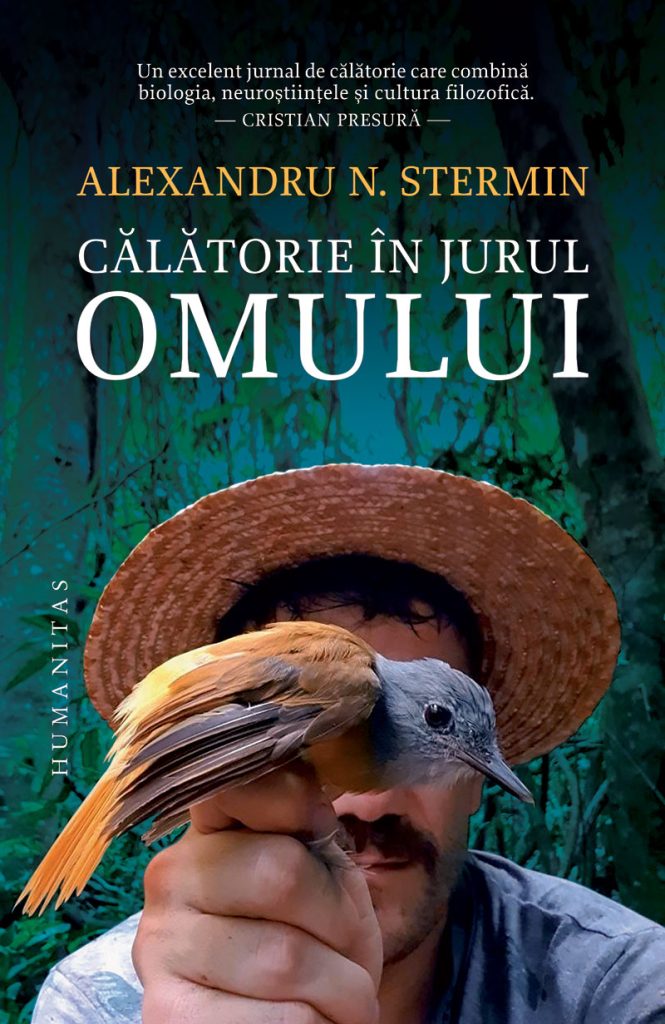
BOOK REVIEW
Alexandru N. STERIM 2024 (2012). A Journey Around Man (Original title: Călătorie în jurul omului). Humanitas Publishing House.
Ruxandra CUCU*
25/03/2025
See more…
I started reading this book more than three months ago, during a flight on the Bucharest-Paris route, which took me back to the “City of Lights,” where, thanks to the Erasmus programme, I could study until now.
Without knowing why, as I looked out the window at the ocean of clouds unfolding on the horizon, I felt I was living in a special moment. Thus, as all rational people do when faced with what appear to be magical moments, I tried to give the moment some meaning. I turned to what was next to me at the time, namely this short travel journal I had received as a gift shortly before the Holidays, and I promised myself to extract from it all possible lessons – in the hope that they might guide the year that was about to begin.
I did not regret this decision; following the example of Alexandru Sterim, a young biologist and researcher who, at the age of 30, set off alone on a 6-day trip to the Amazonian jungle that had always fascinated him, I got to look at my journey through the world with different eyes. I promised myself I would make this movement through the space and time we call life to belong to me thoroughly.
More than a travelogue
Already in its second edition, the second book of the biologist and explorer Alexandru N. Stermin pleasantly surprised me, and this is probably because the work manages to overcome both the patterns of travelogues devoid of substance and therefore superfluous, and those of books of scientific vulgarization that are often too technical and as a result difficult to digest
Thus, if “Călătorie în jurul omului” (A Journey Around Man) can be considered an “excellent travelogue,” it appears to me now, after reading the volume, that it is much more than that. Combining essay with philosophical meditation, this short but profound work can provide all of us, regardless of our fields of interest, with a valuable lesson: that any journey can be turned into a respite for reflection and, through such mental exercise, a life lesson.
As I mentioned before, the volume presents the journey that the author, Alexandru Nicolae Sterim, today a professor at Babeș-Bolyai University in Cluj (Romania), makes on the occasion of his 30th birthday. Taking him initially to the heart of the Amazon Rainforest, where, accompanied by a local guide, he spends a total of 6 days – during which he discovers the practices and beliefs of the people who live in the Amazon, but also the local fauna and flora, especially the majestic parrots that live in the lush jungle – his journey through the world continues in the concrete jungle of Los Angeles, where he spends another 6 days, before arriving in the urban agglomeration of Beijing, China.
Sterim thus passes through all the “forms of aggregation” of human life, starting from life in the middle of the rainforest, where our ancestors lived on the African continent, to (re)discovering modern life and, finally, experiencing an urban agglomeration that arose as a natural result of a human population of 8—some would say even more—billion people. He thus recreates man’s journey, making us partakers of a very successful lesson in biology and anthropology.
“When it comes to travel, we always think, metaphorically, of going out into the world to discover ourselves (…). We, humans, are part of nature and thus the encounter with any of its forms – jungle, meadow, hill, swamp, beach, orchard, or park – consciously or not, envelops us with what it is in essence, a harmony born by chance from chaos”.
We are all immigrants
Migration is one of the volume’s central themes, appearing in the book in two guises. First, migration occurs in the form of journeys—longer or shorter—that we can all make and that aim to discover the surrounding universe. However, as Sterim demonstrates, it can also prompt us to some of the most profound reflections.
Second, a substantial part of the volume is devoted to discussing the history of the human species and, implicitly, the long migration that our ancestors had to make to populate the entire planet. Sterim reminds us, in other words, of our origins and how much migration— often treated today as a process with exclusively negative consequences—was at the origin of human civilization.
Travel as an exotic fruit
Finally, if I had to choose a sequence from this work that notably marked me, I would be forced to refer to the passage in the book in which Sterim tells us an anecdote from the jungle, in which his local guide, Roberto, teaches him to eat the exotic fruits specific to the Latin American continent “correctly”: “You take the fruit carefully in your hand, you feel its texture and weight; you look at it from all sides until you are sure that not a square millimetre of the fruit remains untouched by your sight, mind and smell. Then you close your eyes, and after you have felt the texture and smell, you see its shape and colour; you try to imagine what it looks inside and tastes like. After that, you cut it in half and compare what you see with what you imagined, smell it, reimagine the taste by the texture, the colour and the smell inside, and finally, you taste it (…): and in the end, life is nothing but an exotic fruit”.
Instead of a conclusion, about travel
A few days ago, I visited the paleontology and comparative anatomy exhibition at the National Museum of Natural History, located southeast of Paris, at Jardins des Plantes. In a vast hall, seemingly unchanged from the Industrial Revolution era, we saw hundreds of skeletons – of some extinct species but others still alive. Spanning all seven continents or dating back, in some cases, hundreds of millions of years, they reminded me of Sterim’s book. They made me grateful to live in a world where journeys like Sterim’s to the Amazon jungle, or mine to France, are (still!) possible.
*Ruxandra CUCU, master’s program European Politics and Society, 2023-2025
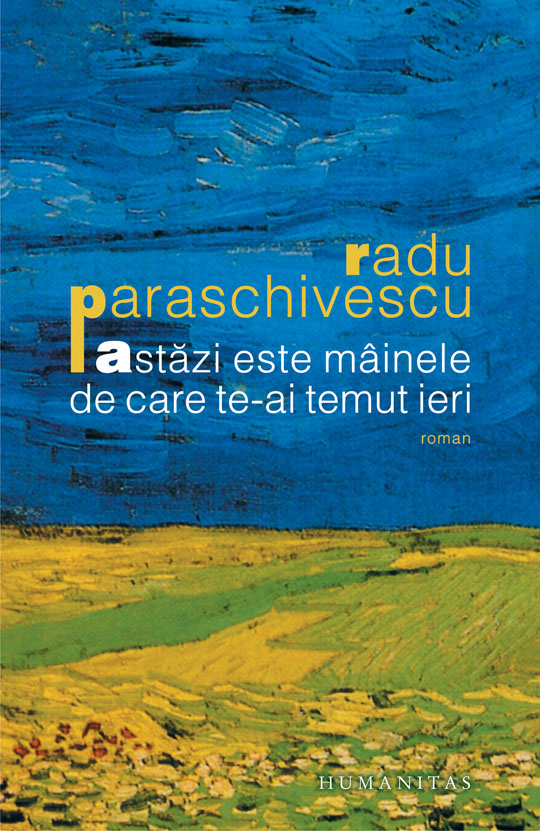
BOOK REVIEW
Radu PARASCHIVESCU. 2023. Today is the tomorrow you feared yesterday (Original title: Astăzi este mâinele de care te-ai temut ieri). Humanitas Publishing House.
Adriana Casandra CIOCÂRLAN-COLLIE *
21/02/2025
See more…
“Astăzi este mâinele de care te-ai temut ieri” („Today is the tomorrow you feared yesterday”) is a novel centered on journeys – not only the physical ones we take, but also the profound inner transformations that unfold along the way. It tells the stories of people who leave their pasts behind, face loss, endure challenges, and often rediscover themselves. At the core of this narrative isn’t a traditional character, but rather a timeless song that embodies suffering, protest, and hope, resonating across generations.
Born in 19th-century Ireland during one of the deadliest famines in European history, this song emerges from the deep pain and despair experienced by those suffering first from poverty and then from an unjust system. In an era when countless individuals faced starvation or were forced to emigrate, its lyrics became a silent plea for compassion towards a prisoner condemned for stealing a few grains of corn – a desperate act driven by the instinct to survive. Beyond the prison walls, the song resonated with the souls of those who heard it, evolving into a powerful testament to the suffering of the oppressed. As Irish prisoners were deported to penal colonies in Tasmania, the song journeyed across oceans, carried by those who had lost their freedom yet refused to be silenced. In the remote camps of the British Empire, its lyrics took on fresh significance – not merely a lament of the impoverished, but a resolute anthem of protest against injustice and cruelty.
Centuries later, a diary from a prison unveils the melody once more, capturing the interest of an English publisher and an enthusiastic antiquarian. As a result, the song is revived in Europe and, through a series of events, finds a home with Liverpool football supporters, evolving into an anthem of unity and hope.
One of the most powerful themes in the novel is migration, which is depicted in various ways – forced exile, economic displacement, and cultural integration. The book effectively illustrates the trauma faced by prisoners who are deported across oceans, capturing not only their physical suffering, but also the emotional turmoil that comes with being uprooted. “To be torn from the land where you were born, to have the sky above you changed overnight, means not just the loss of freedom but also the loss of a part of your soul”. This poignant line encapsulates the deep anguish experienced by those who are compelled to leave their homes. However, the novel also emphasizes the resilience of those who, despite the hardships of exile, find ways to hold onto their identity.
This book reaches out to a wide range of readers – from history buffs and fiction fans to those captivated by tales of human endurance. Even those who aren’t well-versed in historical contexts will uncover a deep lesson in this novel about survival, community, and the strength of shared memories. It serves as a reminder that, despite ever-changing circumstances, our core human experiences – our fears, hopes, and longing for connection – stay constant.
The novel expertly weaves together history and fiction, shining a light on the struggles of marginalized individuals and illustrating how collective memory shapes our identities. Whether through the experiences of prisoners, emigrants, or football supporters, each narrative becomes part of a larger tapestry, where the pursuit of freedom takes various forms yet remains a universal essence.
This book not only reveals the depths of tragedy, but also highlights the invisible threads that connect people. With a thoughtful and poignant narrative, it serves as a reminder that history transcends mere facts and dates – it is also about the emotions that endure through art, whether expressed in an old song or echoed by thousands of voices united by a shared feeling.
* Adriana Casandra CIOCÂRLAN-COLLIE master’s program in International Relations and European Integration, 2023-2025
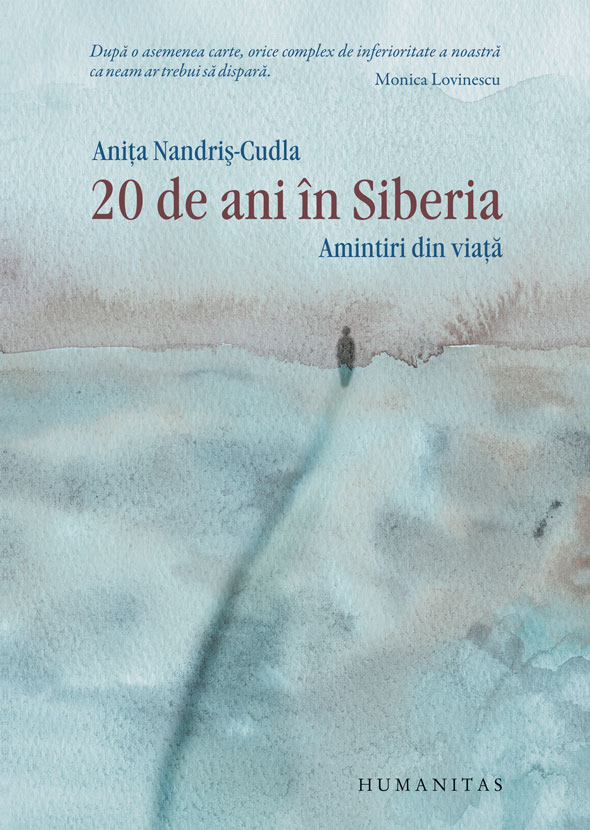
BOOK REVIEW
Anita NANDRIŞ-CUDLA. 2013. 20 Years in Siberia Memories from Life (Original title: 20 de ani în Siberia. Amintiri din viaţă). Humanitas Publishing House.
Clara MIHĂILESCU*
21/01/2025
See more…
20 Years in Siberia is a book that leaves an indelible mark on your soul, a testimony of rare strength that brings to light an almost superhuman story of survival. Anița Nandriș-Cudla, a simple peasant woman from Bukovina, gives an authentic voice to a generation torn apart by the tides of history through a confession that impresses with its courage and simplicity.
The author’s accounts are fragments of an inferno of forced exile, bone-chilling cold, and despair lurking at every step. One of the most powerful scenes is the moment when Anița describes her desperation at seeing her children suffer from hunger: “No one can understand what it’s like to see your child crying and not have anything to give them.” These words echo the universal suffering of mothers in the face of helplessness, underscoring the resilience that defines her.
However, this story is not just about suffering but the human capacity to confront adversity and the power to find light in suffocating darkness. Her love for her children and her faith in God become Anița’s anchor, keeping her from falling into the abyss of despair.
Anița’s deportation, along with her family, stands as a harrowing example of forced migration imposed by a totalitarian regime that uprooted millions from their homelands. This experience reflects the brutal loss of identity and the struggle to adapt to a hostileenvironment—a profoundly relevant theme for understanding migration in both historical and contemporary contexts.
What makes this book so powerful is the way Anița, with just a few years of primary education, manages to write with breathtaking sensitivity. Her simple yet profound language, wrapped in the beauty of Bukovinian dialect, creates a direct connection with the reader. There is no need for sophisticated words when the raw truth is spoken plainly, without embellishment.
Beyond the personal experiences of the author, 20 Years in Siberia is a historical document of inestimable value. This book offers today’s generations a path to understanding the horrors of the past, revealing not only suffering but also the survival mechanisms that define humanity. Its reading can inspire deep reflections on persecution, dignity, and resistance.
The book might appeal to readers interested in history, migration, human rights, or simply in life stories that resonate profoundly. In particular, those who appreciate authentic testimonies will find in 20 Years in Siberia an emotional and intellectual treasure.
Anița Nandriș-Cudla is not merely the narrator of her own story. She becomes a voice for all those uprooted and forgotten by history. 20 Years in Siberia is not just a book; it is a testament to courage, love, and human dignity—a lesson that deserves to be known and passed on.
*Clara MIHĂILESCU, master’s program International Development and Migration, 2024-2026

BOOK REVIEW
Robert D. KAPLAN. 2023. The Loom of Time: Between Empire and Anarchy, from the Mediterranean to China. Humanitas Publishing House. Translated in Romanian by Iulian Comănescu as Urzeala Timpului: Între imperiu și anarhie, de la Mediterana la China
Adriana Casandra CIOCÂRLAN-COLLIE*
See more…
In The Loom of Time, Robert D. Kaplan delves into the regions stretching between the Indian Ocean, the Bay of Bengal, the Arabian Sea, and the better-known Mediterranean and the Balkans. This vast geographic expanse is a mosaic of cultures, histories, and nations, bound together by a shared legacy of great empires – from the Roman and Ottoman to the British and Soviet.
Kaplan connects his analysis to the ideas of Halford Mackinder, a 20th-century geographer who argued that “who controls Eastern Europe controls the Heartland; who controls the Heartland controls the World Island; who controls the World Island controls the world.” The regions Mackinder described are today a collection of fragile states, artificially created in the aftermath of World War I. Many leaders at the time drew borders without considering history, geography, or culture, resulting in regions where stability has often been maintained by authoritarian regimes rather than democracy.
Kaplan critiques the Western obsession with promoting democracy in these areas without understanding local contexts. He argues that people in such regions prioritize order and stability over democratic elections. For instance, in Saudi Arabia, recent reforms such as granting women the right to drive or easier access to passports are seen as significant progress.
Kaplan suggests it is more realistic to encourage “consultative regimes”- which consider public opinion without holding elections – than to push for immediate democracy. He points to China as an example, with its Belt and Road Initiative, which invests heavily in infrastructure to expand its influence across the lands between Xinjiang and the Mediterranean.
Regarding U.S. military interventions, Kaplan admits he was wrong to support the invasion of Iraq. While Saddam Hussein was a dictator, the chaos that followed his fall proved to be worse. Similarly, interventions in Afghanistan and Libya have highlighted the limits of trying to reshape foreign societies according to Western models.
Kaplan concludes with lessons from history, drawing inspiration from thinkers such as Edward Gibbon and Arnold Toynbee. He emphasizes that success in politics and diplomacy requires not only rational analysis but also imagination. If Western leaders could learn from the past and better understand the culture and geography of these regions, many tragedies might be avoided.
* Adriana Casandra CIOCÂRLAN-COLLIE, master programme International Relations and European Integration, 2023 – 2025

BOOK REVIEW
Zülfü LIVANELI. 2011. Serenade. Humanitas Fiction Publishing House. Translated in Romanian in 2021 by Luminița Munteanu as Serenadă pentru Nadia.
Adriana Casandra CIOCÂRLAN-COLLIE*
See more…
Serenade for Nadia by Zülfü Livaneli is a remarkable work of literature that weaves tragic history with profound social commentary, offering readers an intimate look into the complexities of identity and collective memory. It uses the real-life tragedy of the Struma, torpedoed in 1942 with 800 Jewish refugees on board, as the backdrop for a gripping story. The novel follows the life of Maya Duran, a nurse at Istanbul University, who faces personal and professional problems. She is assigned to accompany Professor Maximilian Wagner, a German returned to Istanbul after many years, who has a mysterious connection with Struma. Over the course of the book, Maya discovers the professor’s secrets and the ship’s tragic history, while facing resistance from family and the authorities.
The relationship between Maya and Professor Wagner is developed with finesse and authenticity. Throughout the book, Maya discovers Wagner’s deep connection to the Struma ship tragedy, revealing details about his Jewish wife, Nadia, and the suffering they went through. This central relationship is a story of love, loss and rediscovery, bringing a touch of sensitivity and humanity to the entire novel.
The book is remarkable for the way it combines elements of mystery, political thriller and history, creating a novel that is both informative and deeply moving. In addition, Livaneli pays particular attention to the challenges faced by women in contemporary Turkey. For example, in the context of 2001, the author describes how the police stationed themselves in front of the university gates and denied access to women wearing the hijab, reflecting the tensions between secularism and religion. This aspect emphasizes the complexity and social relevance of the novel, given that these bans were lifted only in 2008.
“Serenade for Nadia” is more than just a story of love and mystery; it is a reflection on memory, identity and the importance of reconciliation with the past. Livaneli shows courage and sensitivity in approaching delicate subjects, offering readers a deep and captivating literary experience. This is a book that not only informs, but also prompts introspection and a better understanding of the complexities of human identity and collective history.
* Adriana Casandra CIOCÂRLAN-COLLIE, master programme International Relations and European Integration, 2023 – 2025
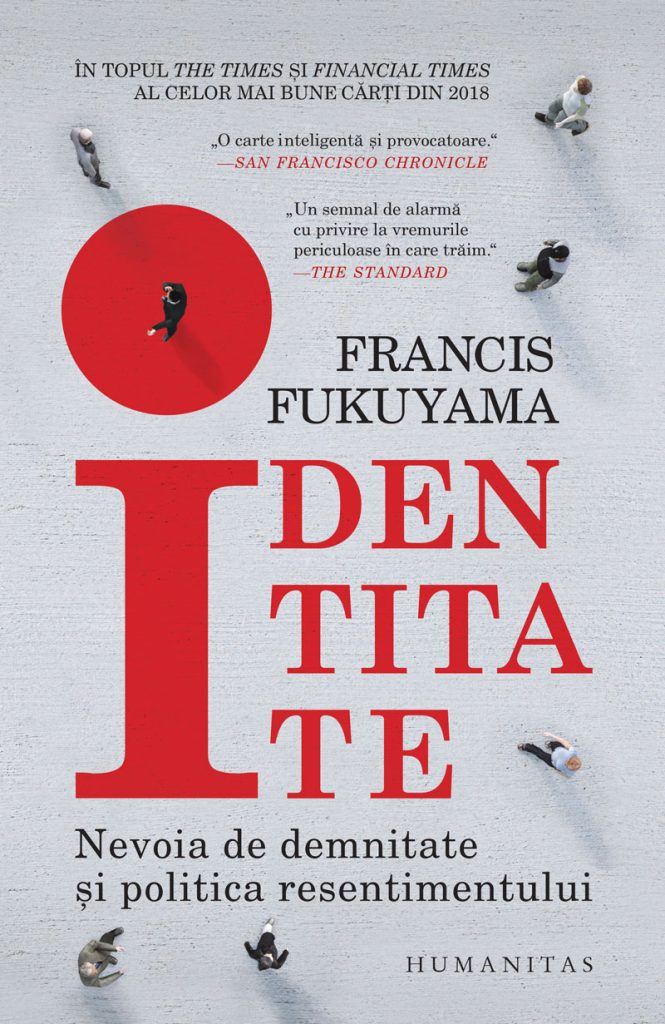
BOOK REVIEW
Francis FUKUYAMA. 2018. Identity: The Demand for Dignity and the Politics of Resentment. Humanitas Publishing House. Translated in Romanian by Irina Manea as Identitate. Nevoia de demnitate şi politica resentimentului
Ștefan MUSCELEANU*
See more…
The identity crisis, but also aggressive identity manifestations, are two aspects that define the international geopolitical climate, especially in recent years. The rise of extremist groups, increasingly virulent doctrinal disputes, the radicalization of Islam, or the resurgence of “whites only” groups, endanger the international construct of recent years, based on tolerance, dialogue, and mutual acceptance, but especially the basic principles of democracy worldwide. All these formidable challenges are generally transparent in Fukuyama’s work, but “Identity” is the book that highlights the ideological chasm that arises between the Global North and South.
In a world where political pluralism is increasingly limited, and the offense of opinion is increasingly widespread, many individuals choose to define themselves only through elements such as religion, sect, race, nation, or ethnicity. The assumed restriction of political and social options can lead not only to individual failure but also to a violent division of society to the brink of civil conflict. “Identity” not only addresses extremely current issues of American society, but also extremely sensitive and generally valid topics in the Western world.
Fukuyama brings back into the public eye the severe economic crisis of 2008, which created a democracy deficit, a true democratic recession, a phenomenon that later spread especially in Europe. At the same time, he reminds us that the Arab Spring of 2011 did not result in a triumph of democracy in the Middle East but, on the contrary, produced the perfect framework for the failure of emerging states that plunged into civil wars with an unforeseeable end.
Even though there is a global rise of elites, educated especially in countries like India and China, the world benefits little from them, as their potential is limited by autocratic regimes with a unipolar view of global politics. The slowness or even lack of reaction from the West in the face of ideological challenges from the East, or internal threats to democracy, can lead to an implosion of old democracies or a monstrous mutation towards ultra-authoritarian regimes, as is already happening in Eastern Europe.
Francis Fukuyama takes up the old theme of identity from Plato, Locke, Rousseau, with the accents added by the feminist movement and contemporary gender politics, and offers a complete global radiography, from which alarm signals emerge regarding the future of human civilization. The essential message, however, remains in the reader’s mind: without identifying a complete and universally accepted meaning of human dignity, and especially without respecting it, humanity risks remaining in the loop of eternal conflicts triggered by pointless global games or regional egos, which can turn the progress of humanity in recent centuries into ashes.
* Ștefan MUSCELEANU, master programme Regional Development and International Cooperation, 2022 – 2024
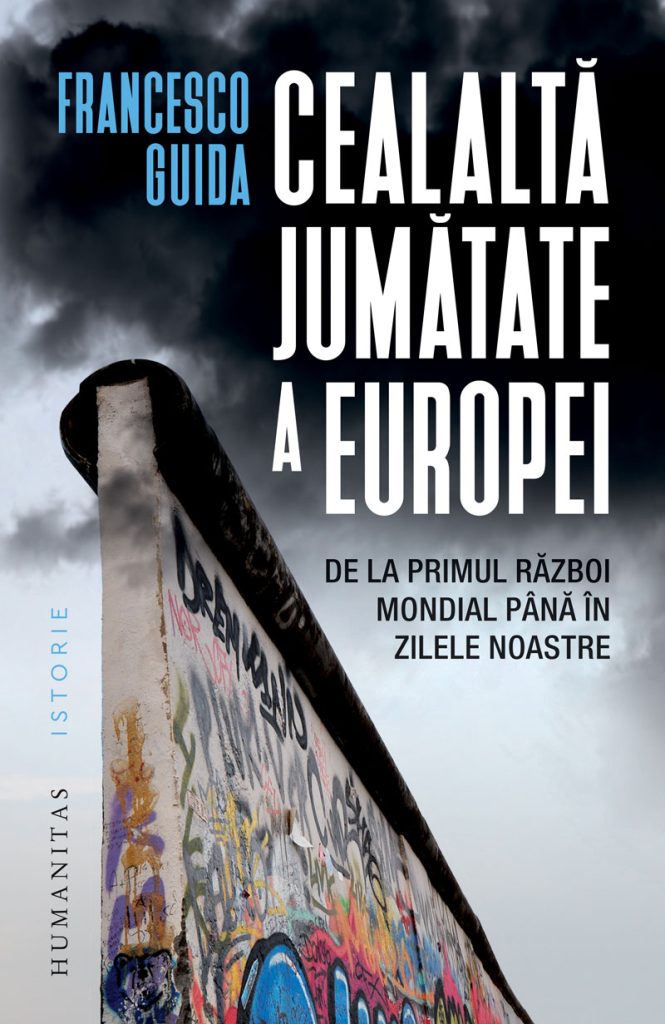
BOOK REVIEW
Francesco GUIDA. 2022. L’altra metà dell’Europa. Dalla Grande Guerra ai giorni nostri. Humanitas Publishing House. Translated in Romanian by Aurora Firța Marin as Cealaltă jumătate a Europei. De la Primul Război Mondial până în zilele noastre
Adriana MOROI*
See more…
The book’s theme gives rise to a particularly extensive historical narrative. From the First World War to the collapse of communism, the countries located between the Baltic Sea and the Black Sea experienced in rapid succession the completion of the formation of nation-states, the introduction of liberal democracy, and the parenthesis of right-wing authoritarianism, as the Second World War culminated in the long era of communist regimes.
The author states in his volume that history is a discipline linked and interconnected with many other fields, but it can be exploited as a self-sufficient body of knowledge, composed of a variety of elements that serve the narrative and reconstruction of facts. Recent decades have seen the inclusion of Central and Eastern Europe in Western Europe through accession to the European Union, with the exception of the smaller states in the Western Balkans, an exception caused by internal dynamics in those areas, generating from time-to-time high tensions, such as those in Kosovo and Serbia. Currently, the military conflict in Eastern Europe is testing the resistance of the accession to the European Union of the states that endured the communist regime and Soviet influence for almost 45 years and questions the validity and vitality of the project of European political, economic, social and cultural unification.
States have undergone a fundamental change in social structure and population, a change that demographers explain starting from the reduced population growth and the radical transformation caused by the decline of the peasant class. The social realities anchored in the stereotypes, rules, and activities of the agrarian world have experienced the industrial revolution and the birth of the tertiary sector. Generalized literacy, begun by liberal regimes and developed by communist ones despite numerous limitations and irregularities, formed the basis for the formation of public opinion and democratic consultations. The spread of mass media accompanied this process, decisively influencing it and depriving it of the positive value of uninterrupted dialogue between political and economic decision-makers and voting citizens, for the responsible and critical exercise of citizenship.
* Adriana MOROI, master programme Regional Development and International Cooperation, 2022 – 2024
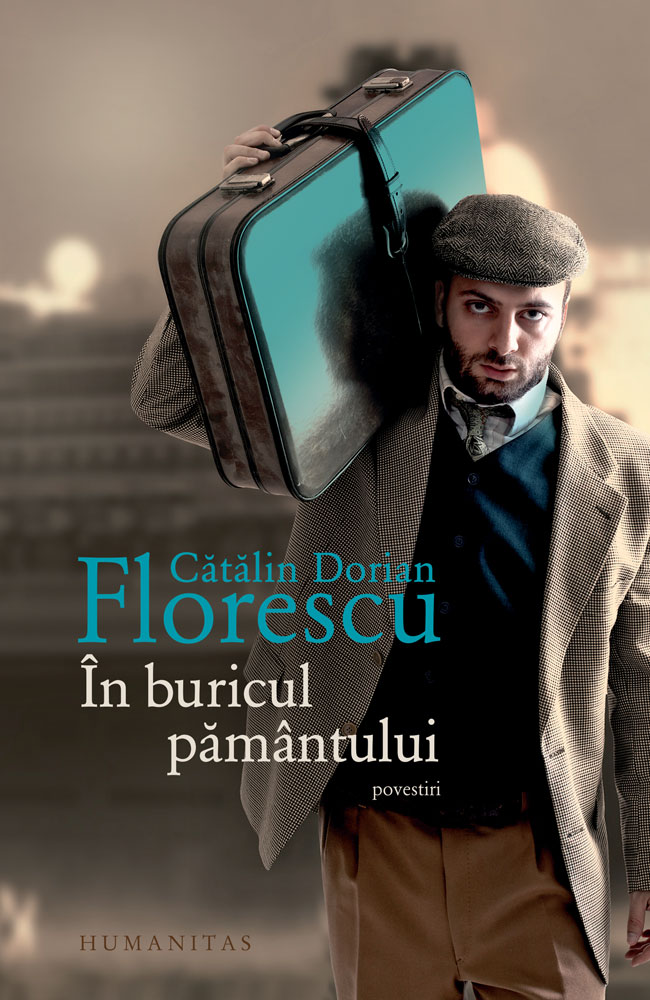
BOOK REVIEW
Cătălin Dorian FLORESCU. 2017. Der Nabel der Welt: Erzählungen. Humanitas Publishing House. Translated in Romanian by Mariana Bărbulescu as În buricul pământului.
Andra-Mihaela BOȘTINĂ*
See more…
The nine impressive stories from “Der Nabel der Welt: Erzählungen” by Cătălin Dorian Florescu offer a profound insight into the universe of migration, a literary journey that begins in August 1982 and never stops. In this book, we discover the tumultuous struggle for freedom and a new identity, illustrating the various motives behind the decision to leave one’s homeland and seek a better future elsewhere. The author guides us through a complex panorama of migrant life and those they encounter on their journey, highlighting the dilemmas and difficulties they face.
For many, leaving their homeland is accompanied by an overwhelming sense of insecurity, as illustrated in the book’s opening: “Mother was not discouraged, so we lived our last day at home like in a museum”. This passage reflects the complex and tumultuous nature of the experience, emphasizing the uncertainty and mix of emotions that accompany each step on the journey to a new beginning. The image can illustrate how migration can bring a rupture from the familiar environment, transforming the home and hometown into a kind of “museum” of past memories. Once in the destination country, migrants face a series of bureaucratic obstacles, such as the stigma associated with their refugee status, as highlighted in the passage “Refugee passport. Blue, with two grey stripes in the upper right corner”. These difficulties underscore the efforts and struggle for integration and acceptance in a new and foreign society.
At the same time, the author explores the impact of migration on interpersonal relationships. The passage “He, the Swiss, means a first-class opportunity for the people here” highlights the contrast between the perceptions and expectations of those in the host community and the actual experience of migrants. This antithesis underscores the complexity and ambiguity of intercultural relationships. Another essential aspect of the book is the separation and loss of loved ones as a result of migration. The passage “She wanted to see her brother one more time” highlights the pain and melancholy of those left behind, who must cope with the distance and absence of loved ones, and in some cases, face permanent loss.
Moreover, the book also illustrates the impact of migration on individual and collective identity. Through the passage “How are you? And Frank? You guys are doing well, good people”, the author illustrates the dramatic contrast between the expectations and reality of life in the destination country for migrants. Thus, migration sometimes becomes a struggle for survival and adaptation in a completely different environment that transforms the identity and self-perception of the individual.
Each character presented throughout the nine stories represents a personal journey, with its own trials and triumphs in the search for a new path in life. “Der Nabel der Welt: Erzählungen” by Cătălin Dorian Florescu is not just a story about migration but also a profound meditation on identity, belonging, and the journey home, wherever that may be. The book brings to the forefront the real issues faced by migrants, presenting authentically the difficulties behind the desire for a better life. It is a sincere and captivating exploration of the complexity of the human experience in the face of the challenges of migration and the constant search for a place called “home”.
* Andra-Mihaela BOȘTINĂ, master programme European Politics and Economy, 2023 – 2025
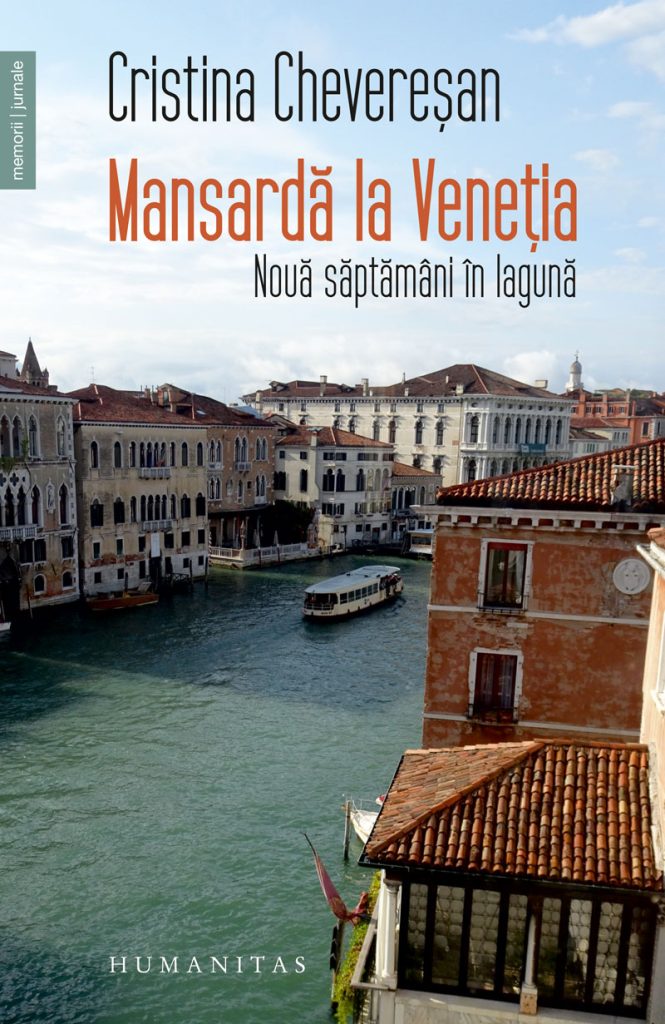
BOOK REVIEW
Cristina CHEVEREȘAN. 2021. Mansardă la Veneția. Nouă săptămâni în lagună. Humanitas Publishing House
Alina TEODORESCU*
See more…
Mansardă la Veneția. Nouă săptămâni în lagună (“Attic in Venice: Nine Weeks in the Lagoon”) by Cristina Chevereșan is a tribute to personal experience in a culturally abundant city, depicted with a sensitivity and depth that surpass the surface of a mere travel narrative. Through the author’s eyes, Venice becomes more than just a picturesque backdrop – it transforms into a vibrant universe of culture and personal experiences.
At the heart of this literary journey is Cristina Chevereșan, a passionate and curious teacher who delves into the essence of Venetian life with an intention of exhaustive exploration. The author’s descriptive style not only outlines the urban landscape of the city, but also captures the daily pulse of Venetian life, from local cuisines to the unmistakable atmosphere of narrow streets and romantic canals. This meticulous approach brings the reader into the midst of a journey filled with discoveries and vivid impressions.
An essential contribution of the book lies in the passages where the author interweaves personal experiences with prominent cultural and literary references, thus emphasizing the depth and complexity of her own experience. From Dante to contemporary authors, literary works become mirrors of Venetian reality, highlighting the inseparable connection between culture and daily life in this fascinating city.
By incorporating elements related to personal experiences as an ordinary citizen and, more nuanced, as an educator, the book inevitably includes a European dimension to the author’s experience. Her deep and introspective analysis brings to the forefront not only the beauty and cultural diversity but also the complexity and contradictions of a Europe of migration and cultural exchange.
Through the author’s presence in Italy as a visiting professor and her initiative to facilitate the exchange of experience with Romanian students, the book illustrates the importance of intensifying academic cooperation at the European level. This cross-border collaboration not only encourages the exchange of ideas and knowledge among academic institutions but also promotes understanding and appreciation of cultural and educational diversity in Europe. Through the author’s personal experience, the book highlights the benefits and opportunities offered by academic collaboration at the European level. The visiting professor in a foreign university becomes an ambassador of knowledge exchange and intercultural dialogue, contributing to the enrichment and diversification of educational and academic perspectives.
By introducing a brief but deeply charged passage regarding the issue of migration in the Mediterranean Sea, the book also becomes a call for awareness of the social and human realities around us. The tragic scene of a shipwrecked boat, in which migrants who recently sought a safer future in Europe lost their lives, brings to the forefront the tragedy and the necessity of a humanitarian and responsible approach to the phenomenon of migration. In a subtle manner, the author invites the reader to reflect on the role and collective responsibility in the face of these complex human and social challenges.
On a personal level, the author’s journey also becomes an opportunity for self-reflection and analysis of her own identity and role in a constantly changing world. Thus, the book transcends the boundaries of a simple travel narrative, becoming a captivating portrait of a complex human experience closely connected with the role of an educator.
In conclusion, Mansardă la Veneția. Nouă săptămâni în lagună is not just a journey through the picturesque streets of Venice but also an exploration of the cultural and existential depths of the author. With a subtle balance between meticulous observation and profound introspection, Cristina Chevereșan succeeds in creating a captivating book that guides the reader through a memorable journey into the heart of contemporary Europe.
* Alina TEODORESCU, master programme International Relations and European Integration, 2023 – 2025
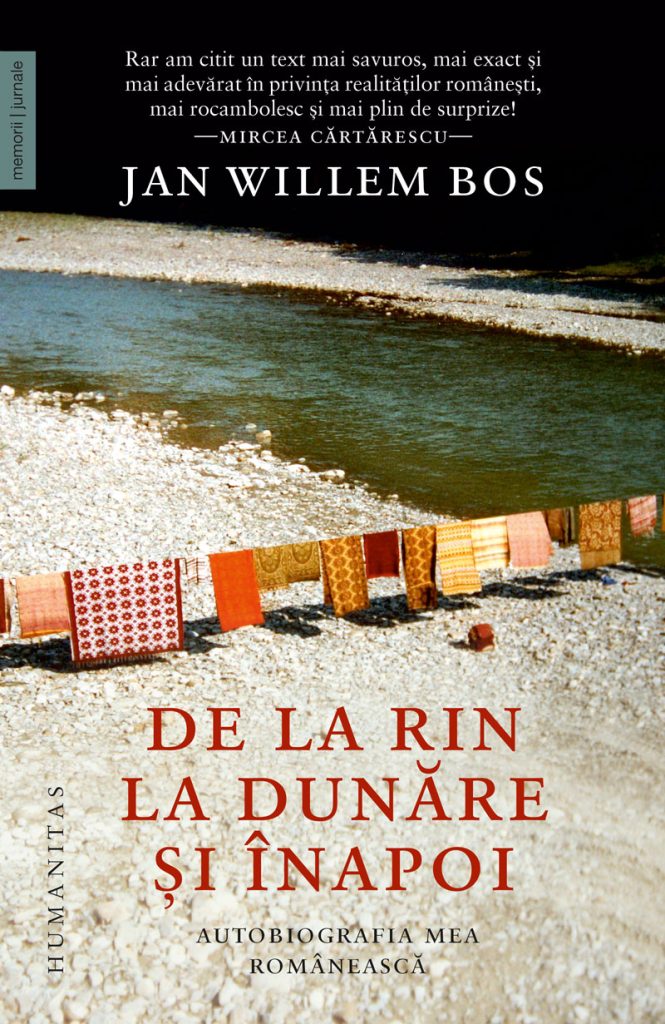
BOOK REVIEW
Jan Willem BOS. 2022. De la Rin la Dunăre și înapoi. Autobiografia mea românească. Humanitas Publishing House
Adriana Casandra CIOCÂRLAN-COLLIE *
See more…
De la Rin la Dunăre și înapoi (“From the Rhine to the Danube and Back”) is a captivating book that unveils the remarkable story of the Dutchman Jan Willem, a translator whose destiny was shaped by Romania. Moreover, it is not merely a narrative of the author’s adventures in Romanian lands but also a profound introspection into his perception of Romanian society during the communist era. Coming from a liberal Western society, the author views communist Romania with both amazement and fascination, describing it as deeply conservative or even reactionary from his perspective.
From the age of 19, Jan Willem’s life was marked by a crucial moment when he decided to focus on studying the Romanian language and literature. Boldly, he chose to leave Amsterdam to venture into the cultural unknown of Romania.
The passion with which the author recounts every moment lived on Romanian soil captivates the reader, offering a sincere and profound perspective on the country and its people. The characters described are portrayed with a naturalness and sensitivity that inevitably win you over.
Through the book, we witness the contrast between the realities of the Netherlands and those of Romania in the ’70s and ’80s. While freedom of expression existed in the Netherlands, in communist Romania, it was merely a distant dream. At the same time, we discover through Jan Willem’s eyes the cultural differences between the Dutch and Romanians, noting that Romanians are perceived as more welcoming, warmer, and more open, while the Dutch are seen as more serious and distant.
A defining moment for the author was the discovery of the pleasure of translation, a passion initiated by a text from the volume Noaptea Inocenților (“Night of the Innocents”) by Sorin Titel. This experience was a turning point in his life, paving the way for a career in translation.
In the end, Jan Willem Bos confesses his belief that life is a succession of consequences, and his journey began by chance. De la Rin la Dunăre și înapoi is more than just a simple travel story – it is a journey of discovery, of learning.”
* Adriana Casandra CIOCÂRLAN-COLLIE, master programme International Relations and European Integration, 2023 – 2025
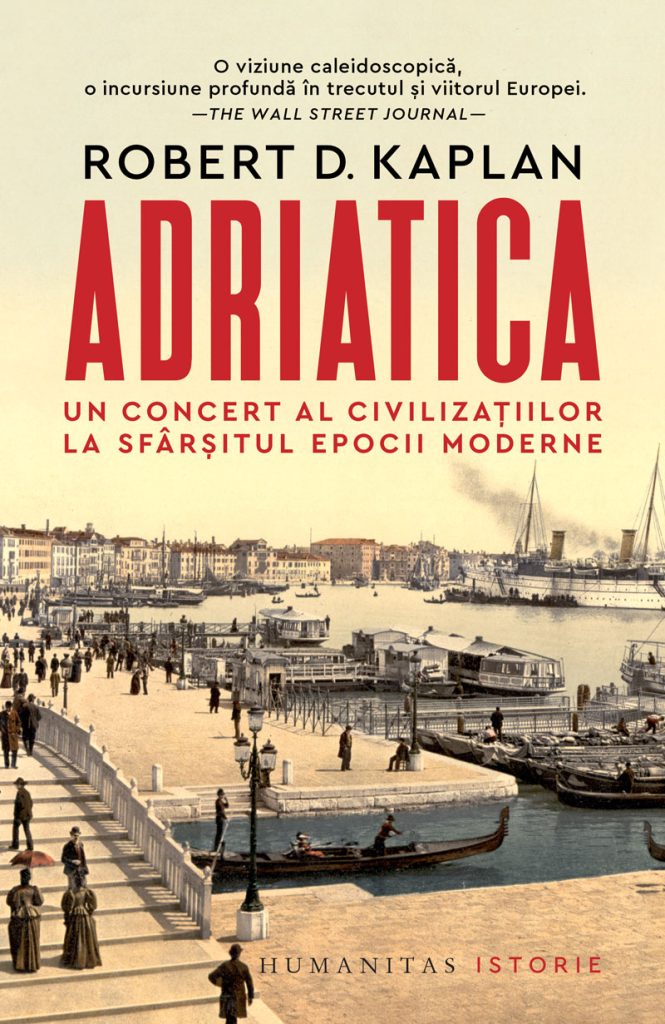
BOOK REVIEW
Robert KAPLAN. 2022. Adriatic: A Concert of Civilizations at the End of the Modern Age. Humanitas Publishing House. Translated in Romanian in 2023 as Adriatica. Un concert al civilizațiilor la sfârșitul epocii moderne by Christian‑Radu Chereji
Dorothea-Maria RADU*
See more…
Along the Adriatic Coast, starting the journey from Italy and continuing through Slovenia, Croatia, Montenegro, and Albania, with the final stop being on the island of Corfu, the author takes us along through the energy of each place, revealing in the pages of the book the particularities of the cities he journeys through. Robert D. Kaplan’s manner of describing the areas he passes through is extremely detailed, leaving the reader the opportunity to understand his perspective on the place, both through the lens of his interactions with locals and through the numerous cultural references he makes.
The author describes the Adriatic Sea as “more than just a vital component of the Mediterranean. It is also a fault line of civilizations and ideological systems, as well as a key to the geographical identity of Central Europe”.
From the perspective of international development and migration, the author actually takes a dive into the evolution of power systems in each place, which he harmoniously combines with the dynamics of the local societies. The Adriatic Sea Basin is seen through the lens of a cultural fusion of peoples’ diversity. This fusion is seen by Kaplan as more of a “concert” than a “collision,” appreciating how the existing peoples have harmonized, while still retaining their ethnic and cultural authenticity.
Through the conversations the author has with the people of the places, he faithfully portrays the citizens’ perspective on the effects caused over time by significant political events. Such events include, for example, the First and Second World Wars, which have left deep marks on the geographical and political physiognomy of the states in the Adriatic Sea Basin. Each state has undergone a process of internal reorganization, reshaping its priorities according to the new world order born out of the two wars.
Another relevant and highly topical issue discussed is the European integration of the countries in the targeted space. Kaplan believes that “the EU did not come out of nothing: it contains echoes of the past”. For example, in one of Kaplan’s conversations with Peter Grk, former senior foreign policy advisor to the Prime Minister of Slovenia, and Alenka Košir, a foreign ministry official dealing with the Western Balkans, they believe that “the European Union means a constructive problem-solving mentality, a belief in legalistic states over ethnic nations, in the sanctity of the individual over that of the group, and in the rule of law over arbitrary decision-making”. They argue that this system must ultimately succeed in one form or another because, in the end, there is no alternative. “Only the European Union offers a form of unity in greater diversity”, they say. And only the European Union can save the failed parts of the former Yugoslavia that lie to the south, beyond Slovenia and Croatia. In this context, we realize that the process of European integration is viewed positively and hopefully by the small countries that have suffered from the major wars.
Essentially, Robert D. Kaplan creates a cultural and political cartography of the Adriatic Sea Basin, which he describes as “the miniature globe” and “a key to the geographical identity of Central Europe” due to the “concert” created by the coexistence of civilizations there.
Through his journey, Robert D. Kaplan aims to sound the alarm about the political and strategic importance of the Adriatic Sea Basin, considering that “Europe cannot afford to neglect these problematic states we have just travelled through. The Adriatic Sea, located at the heart of the Mediterranean and Central European worlds, constitutes a nervous geography that, in the twenty-first century, will have a geopolitical story to tell, the intrigue of which has not yet been written”.
* Dorothea-Maria RADU, master programme European Politics and Economy, 2023 – 2025
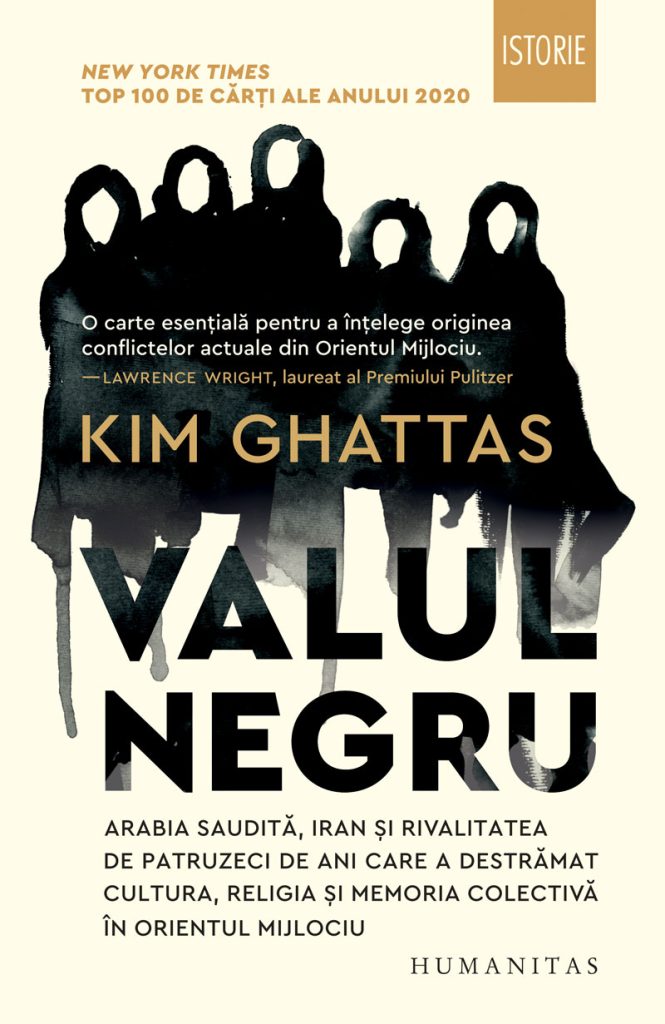
BOOK REVIEW
Kim Ghattas. 2020. Black Wave: Saudi Arabia, Iran, and the Forty-Year Rivalry That Unraveled Culture, Religion, and Collective Memory in the Middle East. Translated in Romanian in 2022 as Valul negru. Arabia Saudită, Iran și rivalitatea de patruzeci de ani care a destrămat cultura, religia și memoria colectivă în Orientul Mijlociu. Ed. Humanitas by Andrei Pogăciaș
Adriana MOROI, Laura BENEA*
See more…
A cultural, societal and political introspection of the Middle East, starting from the question “What happened to us?”.
The full review can be found in audio-video format on our YouTube channel.
* Adriana MOROI, master programme Regional Development and International Cooperation, 2022 – 2024
*Laura BENEA, initiator of the Migrating into Books project, graduate of the International Relations and European Integration master programme (2022)
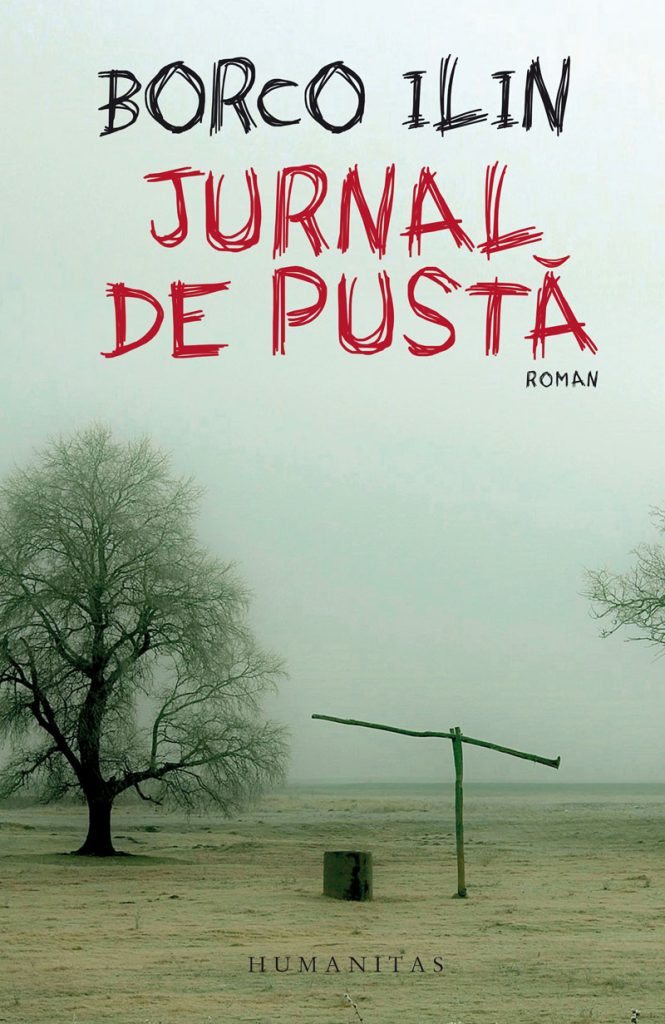
BOOK REVIEW
Borco ILIN. 2021. Jurnal de pustă. Humanitas Publishing House.
Ștefan MUSCELEANU*
See more…
Jurnal de pusta, written by Borco Ilin is an unpretentious, almost spoken book, whose advice tone sometimes makes you feel like having a beer with an old childhood friend found in your adult years.
The book is also a transition of emotions and states from the perfectly described bucolic childhood, to the phases of adulthood, personal demons, initiatory journeys, but also of survival abroad and lasting or passing loves that come together with the author’s self-search.
From the author’s perspective, as a prince and a beggar, familiar with the Banat ghettos, but also with the unyielding nature of the Mureș plain, the book is as alive as the experiences described: from illness, to occupational migration, destiny and abuses of all kinds, but also about simplicity and the vocation of being human.
The full review can be found in audio-video format on our YouTube channel.
* Ștefan MUSCELEANU, master programme Regional Development and International Cooperation, 2022 – 2024
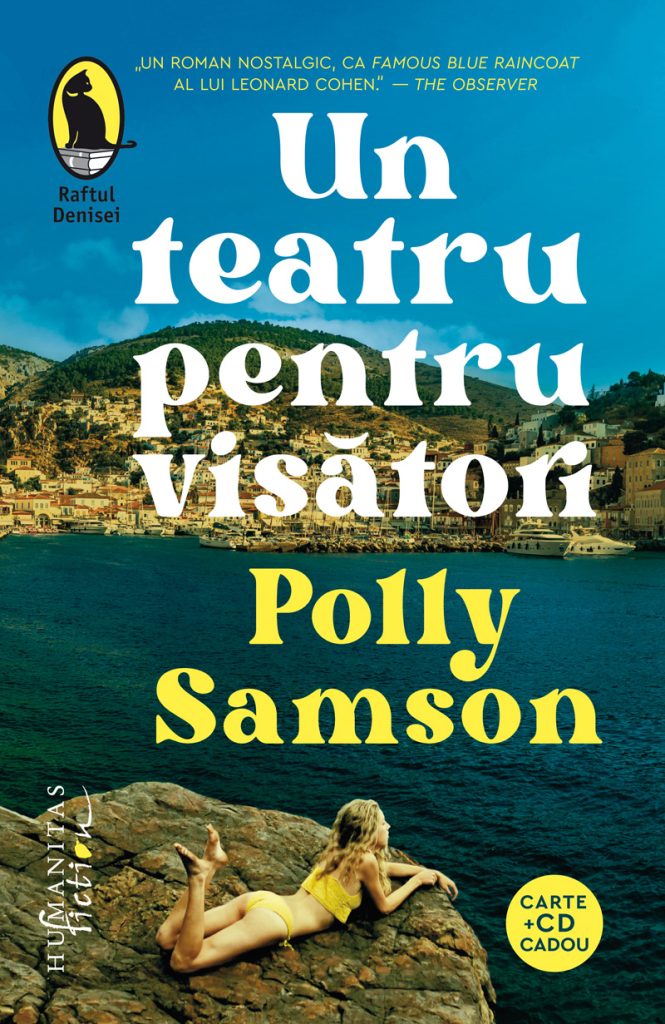
BOOK REVIEW
Polly SAMSON. 2020. A Theatre for Dreamers. Humanitas Publishing House. Translated in Romanian in 2022 as Un teatru pentru visători by Vali Florescu
Laura BENEA, Larisa CÎRJAN*
See more…
Is it possible to migrate also for art? Can you choose a bohemian place, in this big world, far from home, problems and worries, that will inspire you and that will define your works?
Well, it can.
“A theater for dreamers”. It is the perfect description of the Greek island of Hydra 🇬🇷 as it was in the 60s. An enchanting place, especially for artists looking for inspiration: novelists, painters, poets or singers.
Charmed by the stories illustrated by their former neighbour, author Charmian Clift, Erica, along with her boyfriend, Jimmy, and brother, Bobby, decide to take advantage of their mother’s inheritance, a car and some money, to “migrate” in the perfect place for artists: the island of Hydra.
In the universe described by Polly Samson young people gravitate around the writers Charmian Clift and George Johnston, and analytically follow the love triangle between Axel Jensen, his wife, Marianne Ihlen, and the Canadian poet Leonard Cohen.
Whether or not they become writers, what happens to them, but also to their mentors, and what is the outcome of the stories that will hold your breath, you can only find out towards the end of the book.
A very well documented book, which perfectly combines real elements with fiction. We loved it!
* Laura BENEA and Larisa CÎRJAN, initiators of the Migrating into Books project, graduates of the International Relations and European Integration master programme (2022)
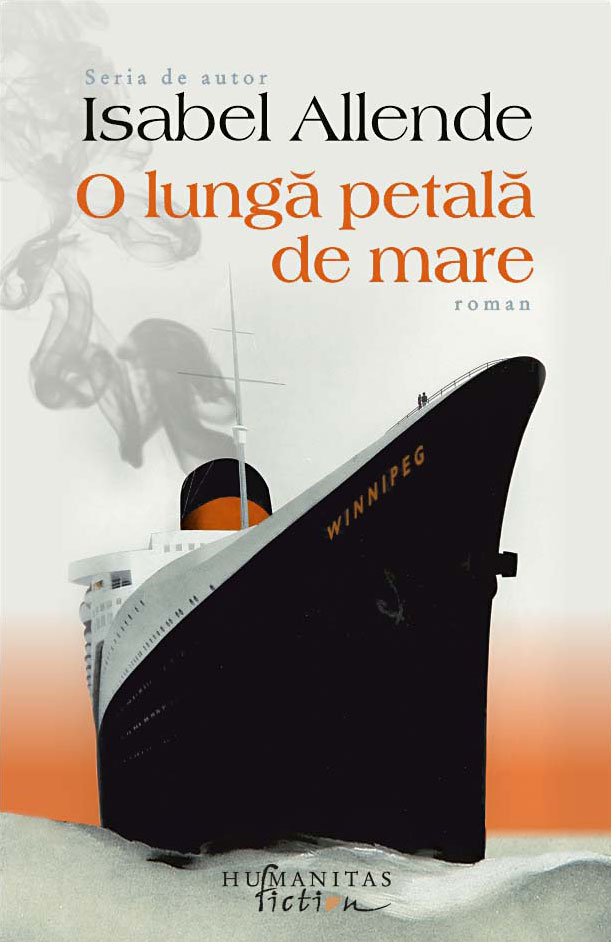
BOOK REVIEW
Isabel ALLENDE. 2020. A Long Petal of the Sea. Humanitas Publishing House. Translated in Romanian in 2020 as O lungă petală de mare by Cornelia Rădulescu
Laura BENEA, Larisa CÎRJAN*
See more…
Victor Dalmau and Roser Bruguera, the two main characters penciled masterfully by Isabel Allende, are the clear definition of migrants. Two Oscar destinies – two characters who fled the path of a civil war, a World Conflagration and a coup. All in a life where they had to constantly start from scratch and where they managed to rely only on themselves and on the love, be it platonic, between them.
A long petal of the sea tells the emotional story of a couple “of circumstances”, forced to survive some of the most turbulent events of the 20th century.
The Chilean writer’s novel does not lack connections with reality and historical characters, such as Pablo Neruda and his ship Winnipeg, President Salvador Allende or Elisabeth Eidenbenz.
Inspired by historical events that she herself experienced firsthand, Isabel Allende explores the emotional bonds formed during a prolonged exile, when her characters come to question whether their homeland is the mythical, irretrievable land of their youth, or that place where after long efforts and a life as a migrant they end up taking root.
* Laura BENEA and Larisa CÎRJAN, initiators of the Migrating into Books project, graduates of the International Relations and European Integration master programme (2002)
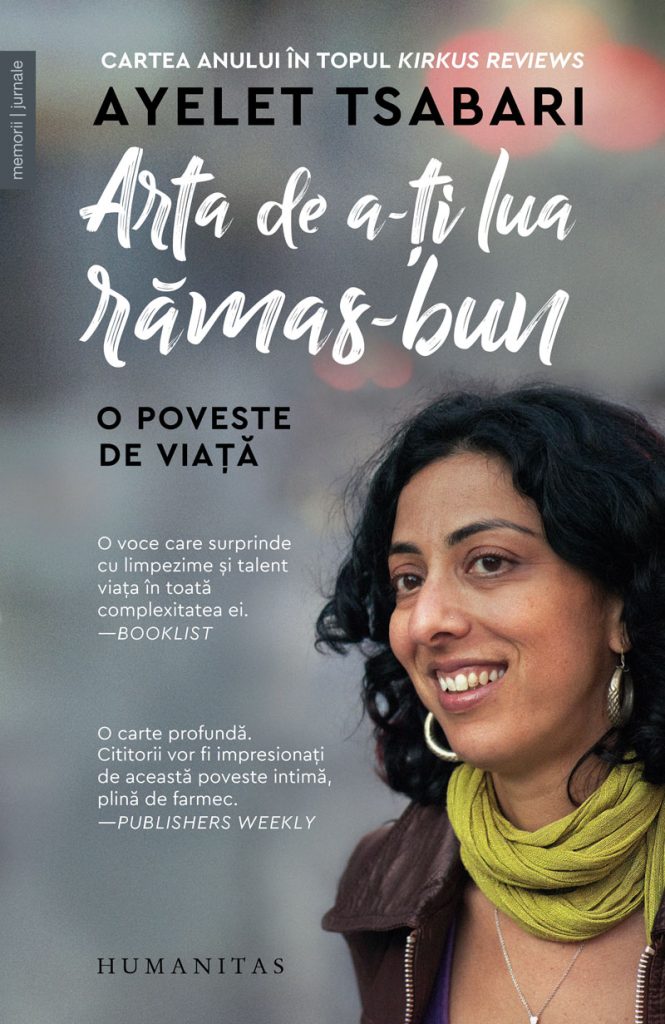
BOOK REVIEW
Ayelet TSABARI. 2019. The Art of Leaving. Humanitas Publishing House. Translated in Romanian in 2022 as Arta de a-ți lua rămas-bun by Ioana-Raluca Flangea
Laura BENEA, Larisa CÎRJAN*
See more…
A collection of self-searching, The Art of Leaving begins with the death of the author’s father, Ayelet Tsabari, when she was just nine years old. His death left her feeling rootless, devastated, and driven to question her complex identity as an Israeli with Yemenite origins in a country that suppressed and devalued the traditions of her ancestors.
In her book, Ayelet Tsabari tells her story: from her early love of writing ️and words, to her rebellion during her mandatory military service in the Israeli army. She manages to travel from Israel to New York, to Canada, Thailand and India, falling in love and loving countries️, men and women, drugs and alcohol, running away from responsibilities and refusing to settle down in one place. She tells of her first marriage, the struggle to make a name for herself as a writer, the decision to become a mother, and ultimately rediscovering and embracing her own family history – a history marked by generations of stubborn women who struggled to choose between their hearts️ and their homes. In the end, she realizes that she must come to terms with her father’s memories and the sadness of the past.
With captivating and moving prose, Ayelet Tsabari creates a meditation on the paths we will travel to try to escape pain, to search for a place to belong, and to realize that home is actually within ourselves.
* Laura BENEA and Larisa CÎRJAN, initiators of the Migrating into Books project, graduates of the International Relations and European Integration master programme (2002)
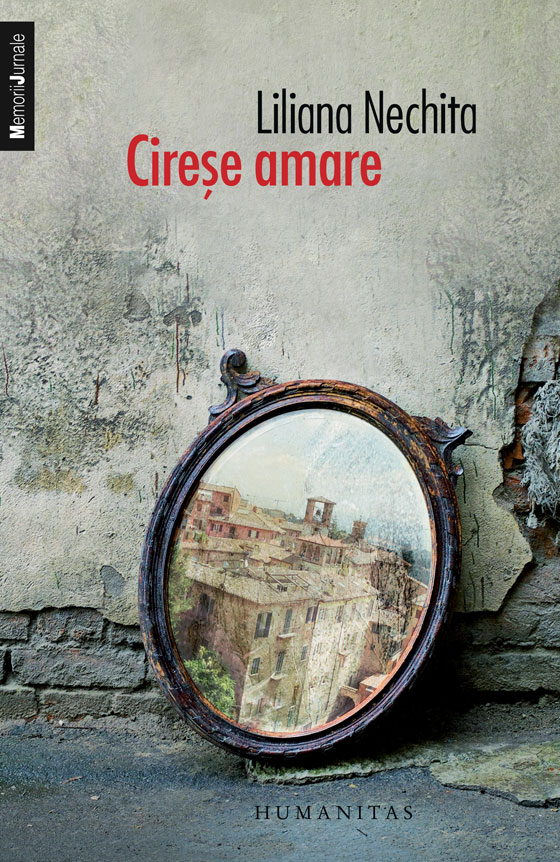
BOOK REVIEW
Liliana NECHITA. 2014. Cireșe amare. Humanitas Publishing House
Laura BENEA, Larisa CÎRJAN*
See more…
Cireșe amare (“Bitter Cherries”) is not just an autobiographical testimony made with undeniable literary talent. It can be that point of departure, evaluated in qualitative research as a testimony/life story from which a whole effort of “social archaeology” can start by which we can understand some aspects of the Romanian post 1989 immigration. No public policy can be considered legitimate or well-founded if it does not include personal experience.
“The personal is political”, a well-known feminist slogan of the 70s, is extremely relevant here as well. Let’s not forget, for example, that in Canada there is doctoral research on the immigration of female nurses from Romania, considered to be a social phenomenon, a topic that should not be missing from the agenda of feminist studies.
The full review can be found in audio-video format on our YouTube channel.
* Laura BENEA and Larisa CÎRJAN, initiators of the Migrating into Books project, graduates of the International Relations and European Integration master programme (2002)